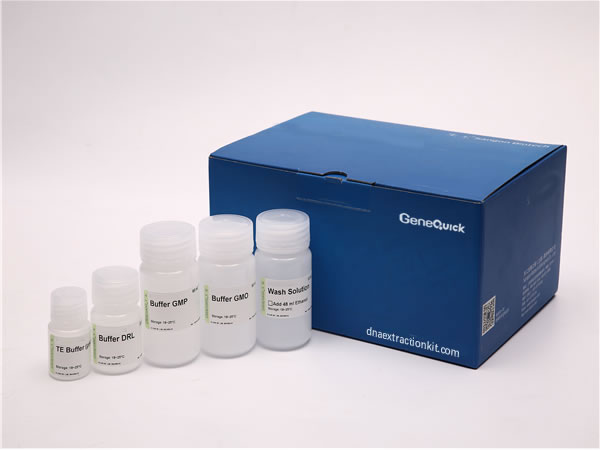What is Magnetic Beads DNA Extraction Kit for Plant?
A Magnetic Beads DNA Extraction Kit for Plant is a specialized laboratory tool designed to isolate DNA from various plant sources, such as leaves, stems, roots, or seeds. This kit uses magnetic beads coated with silica to bind DNA molecules, allowing for efficient separation from other cellular components like proteins and carbohydrates. It is an essential first step in many biological studies, enabling researchers to obtain pure DNA for further analysis in fields like genetics, agriculture, and environmental science. The process is straightforward and minimizes the risk of contamination, making it a reliable choice for both educational and professional settings.
Unlike traditional methods that might involve harmful chemicals, this kit leverages magnetic technology for a cleaner and safer extraction. It is particularly useful for handling tough plant materials that contain inhibitors like polysaccharides or polyphenols, which can interfere with DNA quality. By using magnetic beads, the kit streamlines the workflow, reducing the time and effort required compared to manual techniques. This makes it ideal for high-throughput applications in labs where multiple samples need processing simultaneously.

Technical Specifications
| Model | Method | Sample | Format | Workflow |
|---|---|---|---|---|
| M-PLN-20R | Magnetic Beads | Plant | 20R | Manual |
| M-PLN-50R | Magnetic Beads | Plant | 50R | Manual |
| M-PLN-100R | Magnetic Beads | Plant | 100R | Manual |
| M-PLN-200R | Magnetic Beads | Plant | 200R | Manual |
| M-PLN-8R | Magnetic Beads | Plant | 8R | Semi-automated or Fully Automated |
| M-PLN-24R | Magnetic Beads | Plant | 24R | Semi-automated or Fully Automated |
| M-PLN-48R | Magnetic Beads | Plant | 48R | Semi-automated or Fully Automated |
| M-PLN-72R | Magnetic Beads | Plant | 72R | Semi-automated or Fully Automated |
| M-PLN-96R | Magnetic Beads | Plant | 96R | Semi-automated or Fully Automated |
Working Principle
The principle behind the Magnetic Beads DNA Extraction Kit for Plant revolves on the affinity of DNA for silica-coated magnetic beads in the presence of specific buffers. Initially, the plant sample is lysed using a buffer that breaks down cell walls and membranes, releasing DNA into solution. Chaotropic salts in the buffer help denature proteins and facilitate DNA binding to the silica surface of the magnetic beads. Once bound, the beads are separated from the solution using a magnet, allowing impurities to be washed away with ethanol-based solutions.
After washing, the DNA is eluted in a low-salt buffer or water, which disrupts the DNA-bead interaction and releases pure DNA into the eluate. This method leverages magnetic separation to avoid centrifugation or filtration, reducing the risk of sample loss or cross-contamination. The entire process is based on physicochemical interactions, ensuring high specificity for DNA and making it efficient for diverse plant matrices that may contain inhibitory substances.
Performance
The performance of the Magnetic Beads DNA Extraction Kit for Plant is evaluated based on its ability to yield high-quality, intact DNA with minimal degradation. It typically achieves high purity levels, as measured by absorbance ratios (e.g., A260/A280 around 1.8-2.0), indicating that the DNA is free from protein or other contaminants. This ensures that the extracted DNA is suitable for downstream applications such as PCR, sequencing, or cloning, where purity is critical for accurate results. The kit is designed to work efficiently with small to large sample sizes, providing consistent outcomes across different plant types.
In terms of speed, this kit often completes the extraction process in under an hour, depending on the sample complexity, which is faster than many conventional methods. It also demonstrates robust performance under various conditions, handling diverse plant species from soft tissues like leaves to harder materials like seeds. Users can expect reliable DNA recovery rates, typically exceeding 90%, which supports reproducible research outcomes. The magnetic bead technology enhances scalability, allowing for automation in modern laboratory setups.
Application
The Magnetic Beads DNA Extraction Kit for Plant finds applications in a wide range of scientific and industrial fields. In agricultural research, it is used to study plant genetics for crop improvement, such as developing disease-resistant varieties or enhancing yield traits. Environmental scientists employ it to analyze plant DNA from soil or water samples, monitoring biodiversity or detecting invasive species. In education, it serves as a hands-on tool for teaching students about DNA extraction and molecular biology principles in a safe and engaging manner.
Additionally, this kit is valuable in forensic botany for identifying plant materials in legal investigations, or in food safety to verify the authenticity of plant-based products. Its versatility extends to pharmaceutical research, where plant-derived compounds are explored for drug development. By providing high-quality DNA, the kit supports advanced techniques like next-generation sequencing, making it a cornerstone in modern plant genomics and biotechnology efforts.
Core Features and Advantages
The core features of the Magnetic Beads DNA Extraction Kit for Plant include its use of magnetic bead technology for rapid and efficient DNA isolation, compatibility with various plant samples, and high purity output. It often comes with pre-packaged reagents that are optimized to handle plant-specific challenges, such as high polysaccharide content, ensuring consistent results. The kit is designed for ease of use, requiring minimal hands-on time and no specialized equipment beyond a magnet, making it accessible for labs of all sizes.
Key advantages include its scalability for high-throughput processing, reduced risk of contamination due to closed-tube systems, and environmental friendliness compared to methods involving organic solvents. It also offers cost-effectiveness by minimizing reagent waste and allowing for automation. These features make it a preferred choice over traditional extraction methods, supporting reliable and reproducible scientific research in plant biology.